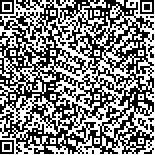| 摘要: |
| 敏感区诊断是适应性观测的关键问题, 集合变换卡尔曼方法(Ensemble Transform Kalman Filter, ETKF)是目前主要的诊断方法之一。将集合变换卡尔曼方法应用于海洋环境适应性观测, 根据ROMS海洋模式数据构建海表温度集合预报, 以黑潮流域宫古海峡附近海域为验证区进行敏感区诊断计算,分析不同间隔时间条件下敏感区分布情况, 结合模拟系统观测试验验证在敏感区进行适应性观测对预报质量的提升效果。结果表明, 在诊断所得敏感区内添加观测能够提升预报质量; 随时间间隔增大, 敏感区向上游区域平移且预报质量提升效果减小; 与在验证区整体添加观测相比, 敏感区观测对预报质量提升效果基本相同并且观测成本明显减少。 |
| 关键词: 适应性观测 海洋环境 敏感区诊断 集合变换卡尔曼方法 |
| DOI:10.11759/hykx20171222001 |
| 分类号: |
| 基金项目:国家530专项2015年第一批任务研究与服务保障项目, 国防科技创新特区项目(17-H863-05-ZT-001-024-01) |
|
| Research on the identification of ocean sensitive area in adaptive observation for the temperature of the Kuroshio watershed |
|
CUI Bao-long,DA Liang-long,GUO Wu-hong,HAN Mei
|
| Abstract: |
| The identification of sensitive area plays an important role in adaptive observation. The Ensemble Transform Kalman Filter (ETKF) method is one of the major identification methods. This method is applied on the identification of ocean environment sensitive area in this paper. The ensemble forecast of ocean surface temperature is gained through ROMS ocean model. The ocean area near the Miyako Strait in Kuroshio watershed is chosen as the verification area. The simulations of sensitive area identification are carried out in different time interval conditions. An observation simulation system experiment is applied to testify the effect of adaptive observations in the identified sensitive area. The simulation data shows that it’s applicable to improve the forecast quality by adding observation in sensitive area. The sensitive area moves towards the upriver area and the effect of improving the forecast reduces while the time interval increases. Thus, it costs less while keeping the precision comparing with adding observation in the whole verification area. |
| Key words: adaptive observation ocean environment sensitive area ETKF |
